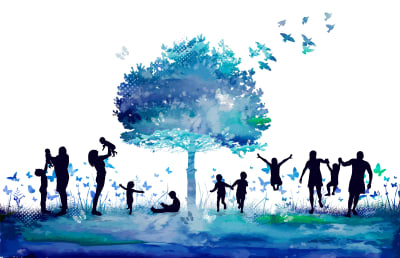IN THIS ERA of the pandemic, the heightening political environment, the tension in Europe, and the ever-increasing concern about climate change, there has rarely been a time in the past when people have developed such a desire to write what they have on their minds. These days, almost everyone writes. Who could blame them?
So Pangyaos, here’s a question – why do many folks write, even when it’s hard to write? My simple belief: it’s because they have something to share or wish to keep records of what they think.
Written words are extensions of our thoughts. They serve as bridges in putting forth the sublime and the low; the funny and the lame; the exciting and the boring; the private and the public; the clean and the sordid. In other words – truths (or perceived truths) that entertain, hurt, inform, and teach.
Written words have greater impact, as we become the words that we read; we become the heroes and heroines we imagine; we become the characters in the story and the teachers who inform. We not only become part of what we write, but we also take the form of its shape and rhythm for our amusement. Written words are the catalysts of change.
When someone writes, they want to share their thoughts. The choice of the audience varies, however. For example, a writer may like to share what they write with everyone, a selected few, or even just with themselves.
When do we write?
I value every minute of discovering an idea, a conflict, a joy, or an imagined riveting account, so I know that I need to put them in writing as soon as possible. And that is one reason why I created myself this motto:
"A writer who delays the writing of his thoughts is like a man who makes a cup of hot tea after the water from the kettle cools down"
That’s not to say it’s an easy task; there were times those ideas and thoughts came like politicians promising long bridges and roads. And once you start to act like you want to write them on paper and record them, your thoughts and ideas will leave you like they never knew you, never to be found again – at least, until that moment you become inspired to look for them again.
Writing is powerful
A piece (a story, song, poem, lecture, etc.) can be something as simple as a short, organised series of thoughts from an author; however, this could be a moving and life-changing voice to a particular reader.
But writing can be scary too, for an author may never really know the impact (positive or negative) that their piece may produce, be it on an individual or a group.
Readers may interpret what the author has written based on their own experiences or their own agenda. This basic fact – an already accepted fact in the writing world – is not stopping many writers from writing what they have in their minds. The reverse is more genuine.
Writers write because they want to produce impact; they want to share; they want to influence. No matter what window-dressing a writer puts in their piece, they want to tell people about it, as their words reveal a facet of who they are, that manifest their genius or their folly.
There is no pretence in writing
We are what we write. The words we write depict what we think. The words we write may not be the regular words we use in our daily conversations, but they are the words that occupy our consciousness, and they matter to us.
The piece we write may or may not survive the invading forces of future ideas or philosophies, but they represent who we are and serve as the ambassadors of our wisdom at the time of writing. And our readers are the judges.
Most of us are already writers in more ways than we imagine ourselves to be. A few examples: email, messenger, WhatsApp, Viber, Twitter, Facebook... these are all vehicles we use these days to write.
And even if we keep our faces stoic while writing, our words will still reveal what we feel. Because in writing:
- we cannot control our inside smile;
- we cannot fake our internal sadness;
- and we cannot hide our deep excitement about the things we want to share.
And because most writers articulate how they view the world and craft their piece as a tool to share their dreams and values, their success and failures, and their fears and visions, it follows that there is always hope in writing.
We write not just because we can; we write because we hope, even via our scribbled words.
We write because it is part of us. We write to communicate, and – whether we like it or not – what we write discloses certain aspects of ourselves. We transform our ideas into written words and express our feelings through penned sentences.
What about you? Why do you write?
If you have an answer to this, write to me. Send your reply to info@pangyao.hk













